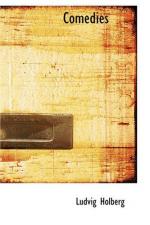In the year of Christian VI’s accession to the throne, Holberg was made Professor of History at the university. Pietist though he was, the new monarch was an enthusiastic patron of scholarship, and during his reign Holberg devoted himself almost exclusively to research, particularly for his History of Denmark, on which his present reputation as an historian rests. The one important work of pure literature that he produced at this time was his Niels Klim’s Subterranean Journey (1741), written in Latin, and published in Leipzig to evade the Danish censor. It is an account of a series of visits that Niels Klim pays to certain strange nations within the hollow of the earth. Like Robinson Crusoe, its partial prototype, it contains much pointed satire on the customs of contemporary society. It was soon translated into most other languages of Europe, and it is one of the very few among Holberg’s works that have been put into English in any form.
At the death of Christian vi, in 1746, the obscurantist character of the court immediately changed. One of the first forms of amusement to be restored was the Danish theatre. Although Holberg had no official connection with the actors, he seems to have agreed to advise them about their repertory, and soon his association with the stage revived his inteiest in dramatic composition. During the year 1751-52, he wrote six new plays, but they lacked the spirited criticism of contemporary society which gave life to his earlier work. They are either founded on Latin models, or are heavily didactic plays, in which the author’s humor fails under the burden of the moral.
The latter part of Holberg’s life was spent in peace and affluence. His interests were more and more devoted to his large estates, and particularly to improving the conditions under which his own peasants labored. In 1747, he was elevated to the rank of baron, after bequeathing his estates to the crown to endow the old academy at Soroe. He died on January 28, 1754, and was buried in the abbey church of Soroe, beside the great Bishop Absalom.
The plays in this volume will give a fair idea of Holberg’s best work. They are all domestic comedies of character, in which the foibles of some one central figure are held up to ridicule, particularly as they are revealed in his relations with a well-defined family group. The scene in such comedies, usually the home of a peasant or a member of the bourgeoisie, is pictured with uncompromising realism. Holberg insisted that his audiences should see everything that he saw. If a Danish peasant actually lay at times in a drunken stupor on a dunghill, he saw no reason why Jeppe should not appear on the stage in an equally disgusting condition. If a peasant girl in life was not averse to simpering vulgarity, why should Lisbed talk any more circumspectly to Erasmus Montanus? Holberg, however, had none of the interest of the modern scientific naturalist in analyses of motive and conduct. His sense of fact was, therefore, picturesque rather than profound. Yet he never wasted his accurate realism upon insignificant things. Vulgar facts invariably led beyond themselves to situations of universal interest and significance.




